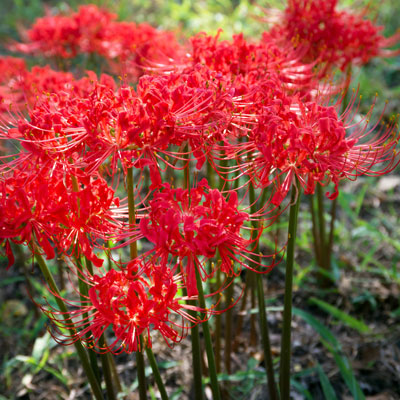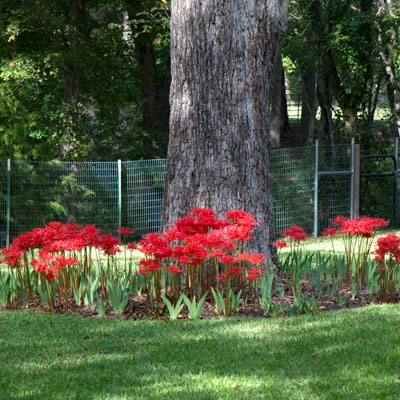Spider Lilies Are Southern Traditions

I grew up in College Station, and every autumn the spider lilies would pop their heads out to remind us that cooler weather was nearing – that fun gardening time was returning. I’m a big fan of bulbs anyway, and there was always something special about these beautiful bright red little pieces of natural fireworks.
Botanically, spider lilies go by the name Lycoris radiata. They’re a southern heirloom bulb (best in Zone 7 and southward) that our great-grandmothers grew, usually beneath large trees where they had little competition from lawngrasses and flowers. And they grew there for generations, passed along from friend to friend, relative to relative. You rarely saw them in nurseries, but you always saw them in gardens. It was almost magical.
Spider lily bulbs are about the size of ping pong balls, which means you’ll want to plant them 3 or 4 inches deep. I prefer to plant mine in clumps of several bulbs just a couple of inches apart, rather than in long, straight rows.

When they’re in full bloom spider lilies grow to 15 or 18 inches in height, so you can use them toward the fronts of your perennial gardens. Mark where you plant them, however, because there is absolutely no sign of them from late spring when their foliage disappears until they start flowering early in the fall, and you might otherwise be tempted to start planting annuals or other perennials right where you have them.
In upcoming weeks I’ll tell you about a few other great fall-flowering bulbs, but this one set the pace for all of the others. None that we grow has been around longer or proven itself any better. You really can’t call yourself a true Texas gardener until you’ve tucked some away in a quiet corner somewhere in your garden.
